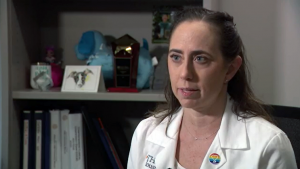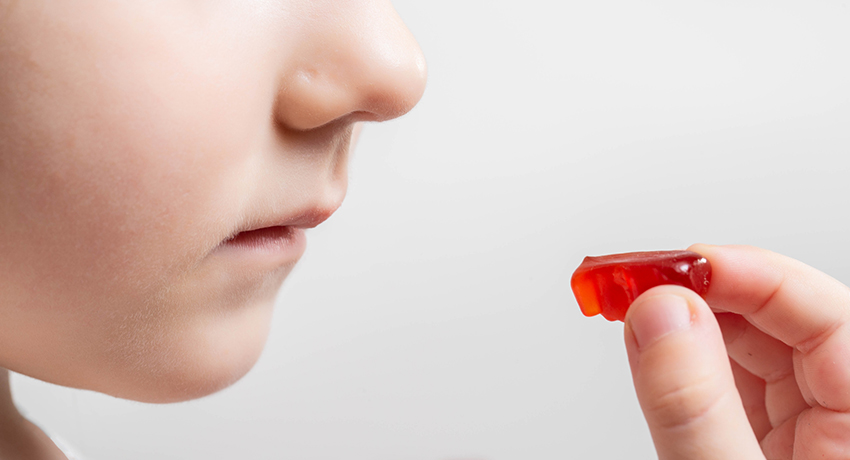A trade association released voluntary labeling and packaging guidelines for melatonin makers in April 2024. This is in an effort to address serious product safety issues. Melatonin supplements marketed as sleep aids for adults and sold in the shape of gummies are of particular concern because kids are mistaking them for candy. Hilary E. Fairbrother, MD, MPH, an emergency physician with UTHealth Houston, discussed the issue on a recent KHOU Health Matters segment. She noted an increasing number of children landing in emergency departments for accidental melatonin use.

“When children find something that looks like candy, they don’t know how to eat only half of one,” Fairbrother said in the segment. “If a child ate 10 or 20 (melatonin gummies), they could be in a comatose state.”
The new melatonin guidelines come from the Council for Responsible Nutrition, a trade association for the dietary supplement industry. They promote responsible usage and provide some hope for Fairbrother. The guideline recommendations came after the Centers for Disease Control and Prevention (CDC) released a new report. It highlighted 11,000 pediatric emergency department visits from 2019-2022 for unsupervised melatonin ingestion. It also noted that accidental melatonin use by children has increased by 420% since 2009.
A step in the right direction
Fairbrother believes we need these systemwide changes, and they will make a difference. She said the number of adults using melatonin has increased dramatically in the last decade.
“The recommendations are a step in the right direction toward making this popular adult supplement safer for children,” said Fairbrother, professor of emergency medicine with McGovern Medical School at UTHealth Houston. “The new guidelines will help parents and our communities use and store melatonin responsibly to prevent unsupervised ingestion and overdose by children.”
Addressing labeling, formulation, and packaging
The new guidelines aim to improve labeling and formulation and suggest child-deterrent packaging. Manufacturers have up to 24 months to implement these voluntary recommendations.
“The CDC’s mission is to protect people across the United States. It’s logical the recommendations by the Council for Responsible Nutrition were made after they published this concerning report on pediatric melatonin exposure,” Fairbrother said. “Toxicologists and patient advocates have expressed growing pressure, especially as manufacturers design many melatonin products to look and taste like candy.”
The FDA does not regulate or have power over nutritional supplements and vitamins as it does for medications. However, Fairbrother believes it does try to verify that consumers have transparency about what they are buying.
“If I buy a melatonin gummy that says it has 2.5 mg of melatonin per gummy, the FDA attempts to verify that there are no other unlisted supplements in that product,” she said. “And that it has the amount of substance it states on the product label.”
As with many business decisions, cost could be a factor as manufacturers take into account the suggested recommendations. Fairbrother believes we will see varying degrees of changes as part of the process.
Until that happens, adults should store supplements out of sight and ideally in a high place that’s hard for children to access. They also should keep supplements in their original containers with caps securely closed.



